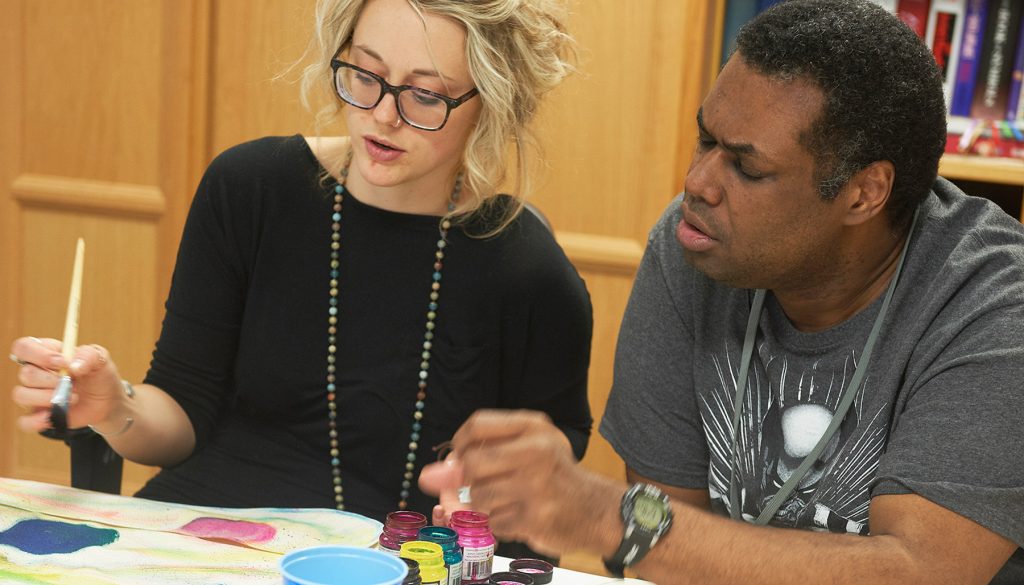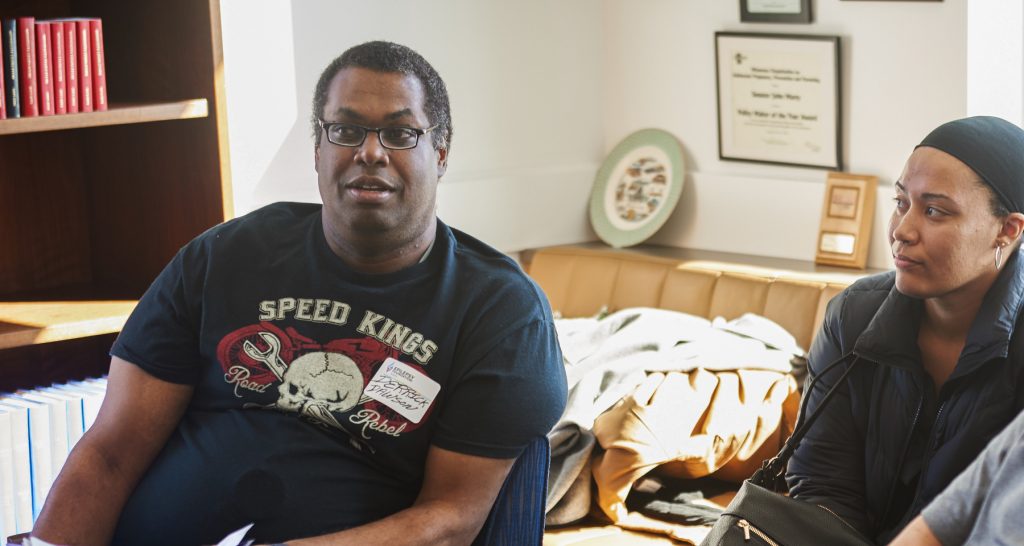Derrick Dawson is a social person. When he lost his warehouse job in 2019, it meant less time with his friends and co-workers. When COVID forced us to bring organizational events online, it meant he wouldn’t be able to attend the in-person events he enjoys, like Studio-E Art Sessions, Connect Groups, the annual Walk, and more.
“It’s been really hard now. COVID is changing a lot of people’s lives. But I’m not letting it put me down and get to me. I’m just going forward. Trying to stay positive and focus on what I can control,” says Derrick.
This “going forward” attitude means Derrick works with a job coach from ResCare, who helped him get a new job at Cub Foods this past October. The two continue to meet multiple times per week, and while they specialize in workplace and employment-related tasks, they help Derrick with so much more.
This includes finding places to live, general home care, getting groceries, other shopping needs, and yes, helping fill the void of missing the in-person events he loves.
“They have a specialty but can help me with anything that I write down. Sometimes I have things we need to do, other times we talk and do things they think of,” says Derrick.
For someone who doesn’t drive, this makes a big impact on Derrick’s day-to-day life. He typically uses Metro Mobility for transportation, meaning he needs to plan ahead to get to work on-time, and in years past, to our in-person events.

Before Derrick got his seizures under control in 2008, it was harder for him to remember things and plan for the future. His medications affected his memory, which caused him to miss doses and have more seizures.
“My memory wasn’t good before 2008. That’s when I met Dr. Dickens and she found medications that work for me. Since then, I haven’t had a seizure and my memory is a lot better,” says Derrick.
Being diagnosed with epilepsy at seven months old, Derrick spent most of his life trying different medications and moving between doctors. Outside of a few specific seizures and injuries, he can’t remember much about his medical care during those years and relies on what he’s heard from family members.
Now, he can easily manage his three medications and take them as prescribed, thanks to his improved memory. It’s obvious why Derrick talks about 2008 as one of the most important years in his life. It was the first time his seizures became fully controlled, and allowed him to live a more independent life.
